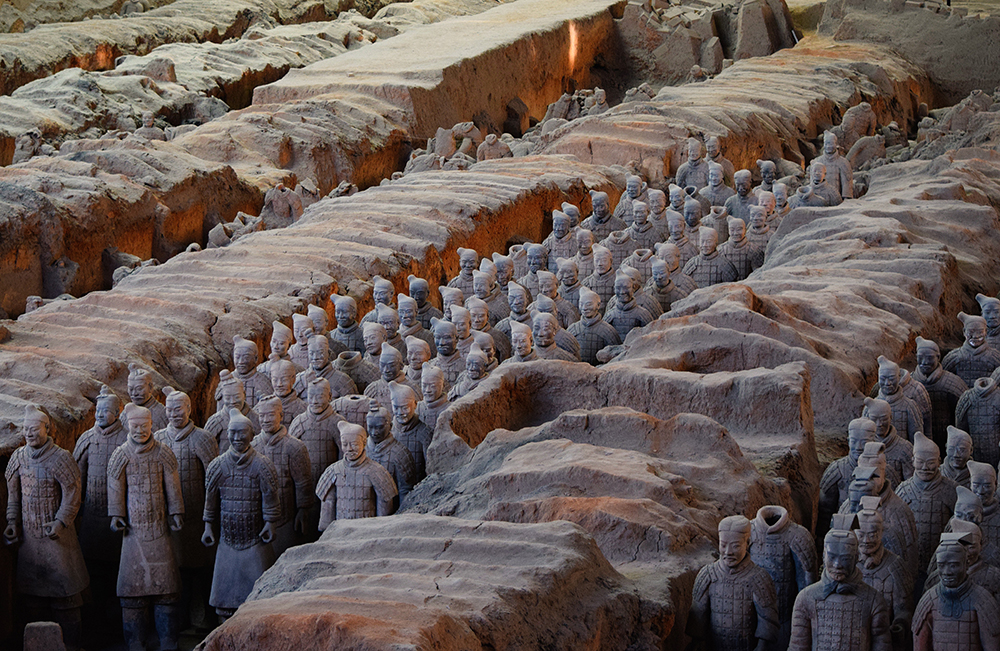
If the bleaker, bolder and more bellicose outlook on security in our region triggers instant pangs of anxiety and alarm among Australians, there is probably a perverse benefit to the discomfort.
It saves time.
The thinking that shapes this starkly more assertive defence plan is based on one foundational belief: that sooner or later, everyone will reach the same conclusion about threats to this island, and sooner is preferable to later.
A bit like fighting a virus, time is as precious as money when a nation is trying to repel an unwanted advance.
A level of consent from the people goes a long way too, which is why Scott Morrison’s blunt language about the abrupt disappearance of the “benign security environment” is calculated to jolt the public into accepting the military escalation the PM’s ordering and it is paying for.
At $270 billion over a decade, the money is considerable, but dollars alone do not explain what’s happened in defence, diplomatic and national security thinking since the last Defence White Paper was handed down by Malcolm Turnbull in 2016.
The Government will acquire long-range missiles to extend Australia’s reach.(Supplied: Lockheed Martin)
In four years but really closer to two the people who hear, watch and interpret the words and actions of Australia’s friends and potential foes have undergone a revolution in their understanding of China’s intentions in particular and the irascibility of Trump’s America.
That change is amplified again in Morrison’s delivery of the latest update.
Forget “hawks” versus “doves”. The doves were pecked mercilessly, and quietly fled a while back.
The better metaphor for those working on Australia’s foreign policy are the frontier boundary riders, erecting fences and warding off any unwanted approaches.
China at the centre of changes
It is pretty much all about China these days.
Who else could the Prime Minister be talking about when he contrasts this country’s approach with an unnamed other “we don’t seek to entangle or intimidate or silence our neighbours” as he vows “to shape, to deter, and to respond with credible military force, when required”.
Who else could the White Paper be referring to when it inserts the words “coerce” or “coercion” a dozen times in a document only 12 pages in length.
He is not freelancing, but accurately reflecting the wider shift in thinking and disposition that the boundary riders have adopted.
In their view, there’s no point in a prime minister banging on about defending the international “rules-based order” anymore China’s not playing by those rules and Trump is rewriting them on the fly, as he sees fit, on any given day.
So it’s gone, Morrison’s not even paying lip service to those quaint notions anymore.
David Littleproud says the Federal Government is preparing for a more dangerous world.
“We have moved into a new and less benign strategic area, one in which the institutions and patterns of cooperation that have benefitted our prosperity and security for decades are now under increasing, and I would suggest, almost-irreversible strain,” he said.
Once a government’s arrived at the idea that benign patterns of cooperation are under “irreversible strain”, the next questions are simply when and where the breaking points will be.
The Defence White Paper update answers them something like this: north of Australia, south of China, hopefully not as far south as Papua New Guinea and not at any time before this country has a more capable kit of the military equipment to send to the boundaries.
Billions for breakfast, and more by lunch
Australia’s Defence spending is generous, and at 2 per cent of the nation’s economic output, even more so since COVID-19 crashed the economy.
But its history of buying and building the weaponry, planes, ships and machines when it is needed and at the budgeted price is patchy, to say the least.
And if we are to accept the Government’s call to arms has the urgency the Prime Minister says it does, then margins for error and delay only shrink.
About $270 billion will be spent on Defence over the coming 10 years.(ADF/Lockheed Martin)
A little money might buy a little time, but having a lot of it does not necessarily get you the military kit you ordered any sooner.
Of all those Attack Class submarines, the Future Frigates and the Offshore Patrol Boats confirmed or reconfirmed on the shopping list in the Turnbull Defence White Paper, none is anywhere near the water.
One copy of the patrol boat could be ready at the end of next year, six years after Cabinet first gave approval.
The submarines, we are told, are the single most strategically important asset Australia can have. The official story is that things are going swimmingly with the French Naval Group. The evidence for that is murky.
No amount of strident language and almost no amount of additional spending can guarantee a culture shift in a defence organisation notorious for gobbling billions for breakfast, getting more by lunch and then demanding a supplement for dinner.
All the while, China and the proven manufacturing powerhouses of Asia, including Japan, South Korea, India, Indonesia and Vietnam, have their formidable military machines tapping out product at a very fast clip.
The strategic shift is all about China’s growing influence.(ABC News)
Of course, not everything Australia is putting on its shopping list will be made here. Joint Strike Fighters, missile shield systems and unmanned robotic vehicles that float, sink or fly will come direct, software coded and usually pre-built, from the United States.
An arms race of bewildering technology is on, whether Australia makes stuff itself or not.
Militant words only lead in one direction
Australia has determined it will not go the way of New Zealand, with a defence force only able to do the bare basics abroad and to meet the meagre demands placed on it at home.
Throw in the weakened south-west Pacific nations of Fiji, Vanuatu, Tonga, Solomon Islands and Papua New Guinea (to name a few) and the load to be lifted in defence of the region most definitely falls to Australia.
That’s what the Pacific “Step Up” plan, endorsed by the Coalition and Labor in late 2018, was all about.
It is also the base-level expectation of the United States, regardless of the occupant of the White House, that Australia should meet the security needs of these states, before Beijing does.
Mr Morrison’s talk shows he’s not paying lip service to the old world order.(ABC News: Matt Roberts)
Whether the current occupant in Donald Trump will notice, let alone credit, Australia for the massive muscle-up it is taking here is another question entirely.
It’s unlikely, because the President has many other things to occupy his famously short attention in the next 5 months picking his own fights with China on pandemics and trade among them.
From its perspective, Beijing can now be assured the rhetorical battlelines in its multi-faceted feud with Australia are sharply drawn.
The rhetoric is so forcefully militant, and deliberately so, that friction can only rise from here.
History tells us as much and so does Morrison.
“We have not seen the conflation of global economic and strategic uncertainty now being experienced here in Australia, in our region, since the existential threat we faced when the global and regional order collapsed in the 1930s and 1940s,” he said.
“That is a sobering thought and it’s something I have reflected on quite a lot lately.”
For good measure, he threw in “we won’t surrender”.
If it sounds like war talk, that’s because it is.
It will cause anxiety and alarm for sure, not only in Australia, but also in China.





More Stories
After a cluster of new COVID-19 cases among the White House staff and a campaign offical, the election night watch party in the White House has become another symbol of U.S. President Donald Trump’s cavalier attitude toward a virus that is ripping across the …
Rob Lucas says the SA economy is forecast to go backwards by 0.75pc in 2020-21, a better outcome than a national economy forecast to shrink 1.5pc.
Labor and crossbench senators want changes to JobMaker, arguing too many workers will be excluded from the hiring credit scheme.